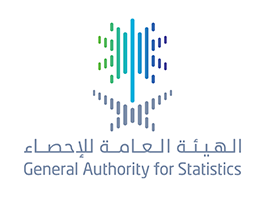Last update 20 / 12 / 2016
"GaStat" : The indicator of the Cost of Living Index decreases in November by (0.2%)

(6) sections decreased, and (3) rose
"GaStat" : The indicator of the Cost of Living Index decreases in November by (0.2%)
On Monday 20th of Rabi'e Al-awal , 1438 corresponding to December 19, 2016 the General Authority for Statistics (GaStat) issued the monthly indicator of Saudi cost of living index for the month of November. It is now published on its website www.stats.gov.sa . The index recorded a decrease of (0.2%) compared to the previous month (October 2016).
The monthly report indicates that the Saudi cost of living index has reached (137.5) in November 2016 compared to (137.8) in last October , recording a decrease of (0.2%). The report attributed the monthly decrease to the decline of the six main sections that constitute this indicator: food and beverages by (0.6%), clothes and shoes section by (0.6%), furniture, appliances, and maintenance by (0.5%), culture and recreation by (0.4%), health by (0.2%), finally, communication section by (0.2%).
On the other hand, 3 of the main sections have witnessed an increase, which are: the transportation section by (0.2%), restaurants and hotels by (0.1%), and the commodities and commodities and miscellaneous services by (0.1%). Whereas, the sections of tobacco, housing, water, electricity, gas, and other types of fuels , and education remained the same with no any relative changes to mention.
The cost of living general index issued monthly by GaStat aims at providing data about the prices of commodities and services that are in the consumer basket. It also aims at providing data about the cost of living indices within a time series. (The consumer basket) refers to the actual group of commodities and services that are recorded during the household expenditure and income survey. The relative distribution of the commodities and services consumption inside the consumer basket is extracted to make it the base stone in the process of indices calculation. The cost of living indices are used to measure any change in the prices of commodities and services that are purchased by consumer. Moreover, it is used as an accurate indicator that measures the economic inflation and recession. It is also used in statistical and economic analyses that are associated with prices movement and anticipations in different times. Data are collected by conducting interviews. The sources addresses are clarified to the interviewers to facilitate their task. The sources distribution in one city must cover all available commodities and services with all levels.
